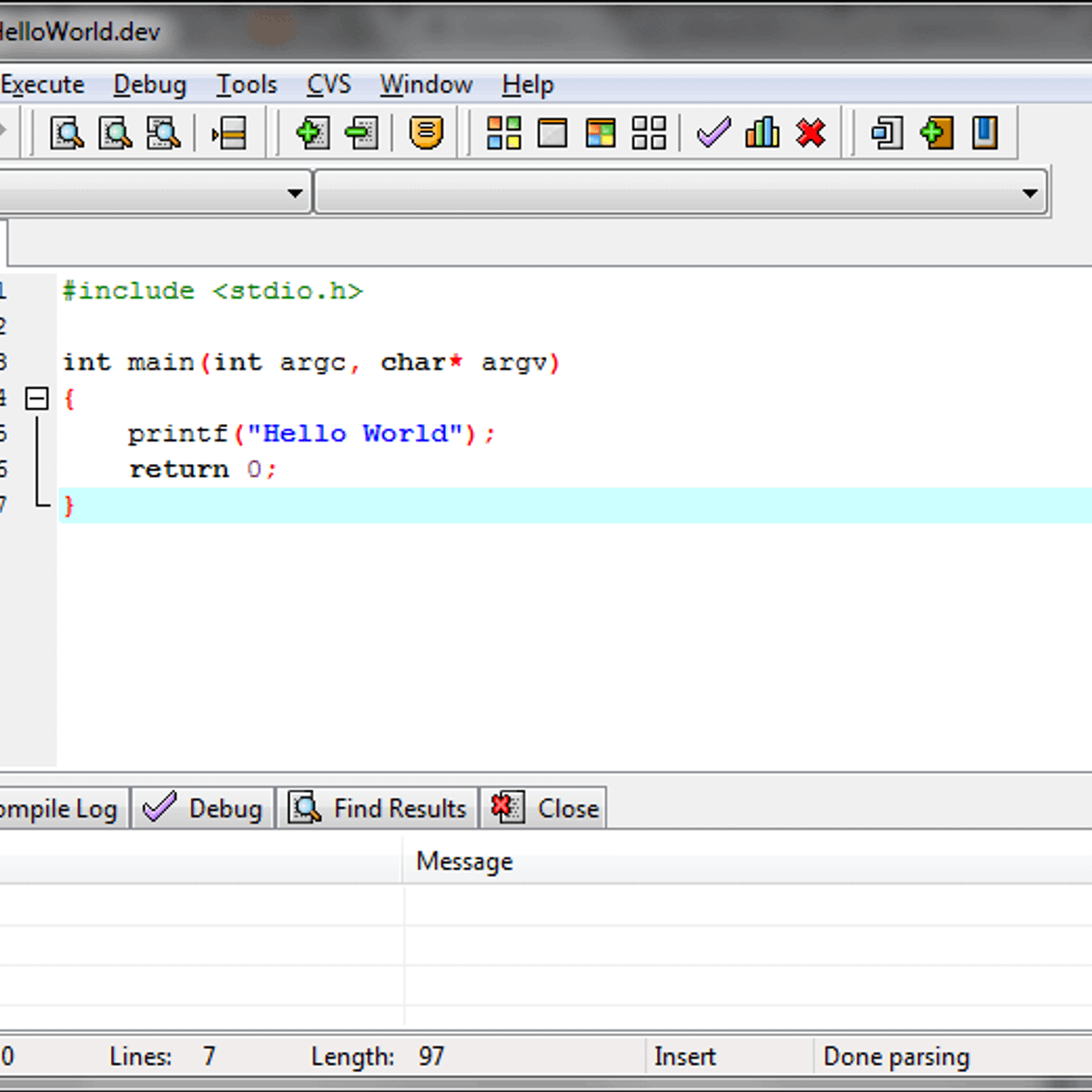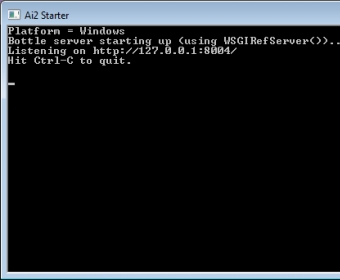Interface En Dev C++
- C with Interfaces. By Christopher Diggins. Christopher Diggins is a freelance computer programmer and developer of Heron, a modern general-purpose open-source language inspired by C, Pascal, and Java. In the process, I present HeronFront, a code generator for C that generates interface-style types from a file containing interface.
- I would like to use interfaces in c like in java or in c#. I decided to use purely abstract classes with multiple inheritance, but something is terribly wrong when I specialize the interface: cl.
- C has no built-in concepts of interfaces. You can implement it using abstract classes which contains only pure virtual functions.Since it allows multiple inheritance, you can inherit this class to create another class which will then contain this interface (I mean, object interface:) ) in it.
- Dev-C is a free full-featured integrated development environment (IDE) distributed under the GNU General Public License for programming in C and C. It is written in Delphi. It is bundled with, and uses, the MinGW or TDM-GCC 64bit port of the GCC as its compiler.
- There is no concept of interface in C, You can simulate the behavior using an Abstract class. Abstract class is a class which has atleast one pure virtual function, One cannot create any instances of an abstract class but You could create pointers and references to it.
- C Interface - An interface is a description of what member functions must a class, which inherits this interface, implement. In other words, an interface describes behavior of the class.

C/C for Visual Studio Code (Preview) C/C support for Visual Studio Code is provided by a Microsoft C/C extension to enable cross-platform C and C development on Windows, Linux, and macOS. Getting started C/C compiler and debugger. The C/C extension does not include a C compiler or debugger.
- C++ Basics
- C++ Object Oriented
- C++ Advanced
- C++ Useful Resources
- Selected Reading

An interface describes the behavior or capabilities of a C++ class without committing to a particular implementation of that class.
The C++ interfaces are implemented using abstract classes and these abstract classes should not be confused with data abstraction which is a concept of keeping implementation details separate from associated data.
A class is made abstract by declaring at least one of its functions as pure virtual function. A pure virtual function is specified by placing '= 0' in its declaration as follows −
The purpose of an abstract class (often referred to as an ABC) is to provide an appropriate base class from which other classes can inherit. Abstract classes cannot be used to instantiate objects and serves only as an interface. Attempting to instantiate an object of an abstract class causes a compilation error.
Thus, if a subclass of an ABC needs to be instantiated, it has to implement each of the virtual functions, which means that it supports the interface declared by the ABC. Failure to override a pure virtual function in a derived class, then attempting to instantiate objects of that class, is a compilation error.
Classes that can be used to instantiate objects are called concrete classes.
Abstract Class Example
Consider the following example where parent class provides an interface to the base class to implement a function called getArea() −
When the above code is compiled and executed, it produces the following result −
You can see how an abstract class defined an interface in terms of getArea() and two other classes implemented same function but with different algorithm to calculate the area specific to the shape.
Designing Strategy
An object-oriented system might use an abstract base class to provide a common and standardized interface appropriate for all the external applications. Then, through inheritance from that abstract base class, derived classes are formed that operate similarly.
The capabilities (i.e., the public functions) offered by the external applications are provided as pure virtual functions in the abstract base class. The implementations of these pure virtual functions are provided in the derived classes that correspond to the specific types of the application.

This architecture also allows new applications to be added to a system easily, even after the system has been defined.
-->Declares an interface. For information on native interfaces, see __interface.
All Runtimes
Syntax
Parameters
interface_access
The accessibility of an interface outside the assembly. Possible values are public and private. private is the default. Nested interfaces cannot have an interface_access specifier.
name
The name of the interface.
inherit_access
The accessibility of base_interface. The only permitted accessibility for a base interface is public (the default).
base_interface
(Optional) A base interface for interface name.
Remarks
interface struct is equivalent to interface class.
An interface can contain declarations for functions, events, and properties. All interface members have public accessibility. An interface can also contain static data members, functions, events, and properties, and these static members must be defined in the interface.
An interface defines how a class may be implemented. An interface is not a class and classes can only implement interfaces. When a class defines a function declared in an interface, the function is implemented, not overridden. Therefore, name lookup does not include interface members.
A class or struct that derives from an interface must implement all members of the interface. When implementing interface name you must also implement the interfaces in the base_interface list.
For more information, see:
For information on other CLR types, see Classes and Structs.
You can detect at compile time if a type is an interface with __is_interface_class(type). For more information, see Compiler Support for Type Traits.
Dev C++ For Windows 10
In the development environment, you can get F1 help on these keywords by highlighting the keyword, (interface class, for example) and pressing F1.
Windows Runtime
Remarks
(There are no remarks for this language feature that apply to only the Windows Runtime.)
Requirements
Compiler option: /ZW
Interface Grafica Dev C++
Common Language Runtime
Remarks
(There are no remarks for this language feature that apply to only the common language runtime.)
Requirements
Compiler option: /clr
Examples
The following code example demonstrates how an interface can define the behavior of a clock function.
The following code sample shows two ways to implement functions with the same signature declared in multiple interfaces and where those interfaces are used by a class.